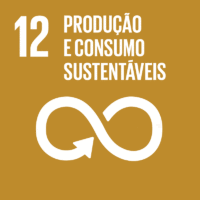Ciência_Iscte
Publicações
Descrição Detalhada da Publicação
The carbon footprint of common vegetarian and non-vegetarian meals in Portugal: An estimate, comparison, and analysis
Título Revista
International Journal of Life Cycle Assessment
Ano (publicação definitiva)
2024
Língua
Inglês
País
Reino Unido
Mais Informação
Web of Science®
Scopus
Google Scholar
Esta publicação não está indexada no Overton
Abstract/Resumo
Purpose: Vegetarian diets have been suggested as one way to reduce the carbon footprint of individuals, when compared to standard Western diets, given the latter’s inclusion of high-carbon footprint animal foods. However, it is unclear if, within usually consumed meals, the average vegetarian meals have a significantly lower carbon footprint than non-vegetarian meals. Often consumed meals were designated as “common” in this research and obtained from real consumers’ food diaries. The purpose of this research is to find out if, in Portugal, common vegetarian meals have a lower carbon footprint than common non-vegetarian meals; and, to communicate the results in a format that might lead consumers in Portugal to reduce this food carbon footprint of theirs. Methods: We conducted a novel analysis for Portugal, namely due to three factors: (1) its focus on meals, rather than ingredients; (2) the inclusion of national food consumption, rather than food production; and (3) presenting the results in a traffic light system. It was also tested how non-vegetarian meals’ carbon footprint would change if animal protein was replaced by plant protein. Results: The carbon footprint of common non-vegetarian meals in Portugal is 5.5 times higher than that of common vegetarian meals in Portugal. There is a wide range of carbon footprint values for vegetarian meals in Portugal, specifically, the 5th percentile is 8.5 times smaller than the 95th percentile. Moreover, the common non-vegetarian meals in Portugal when “made” vegetarian have a carbon footprint about 6.4 times lower than the common non-vegetarian meals in Portugal. Conclusions: There are known limitations in this research, besides the unknown ones, such as using only one environmental impact indicator, namely the carbon footprint (rather than the ecological footprint, other, or even none of these); the limited breadth of studies selected, to obtain the food items’ carbon footprint (reviews, meta-studies, and local studies); and the narrow LCA boundaries and characteristics included in those and subsequent analysis (of the food items’ bioavailability and nutritional functional unit, among others). However, within the scope of this research, the three general hypotheses of this research have been confirmed. It can be concluded that vegetarian food is a potential solution for food’s environmental sustainability in Portugal.
Agradecimentos/Acknowledgements
--
Palavras-chave
Sustainable diets,Plant-based diets,Carbon footprint,Food consumption,Sustainability
Classificação Fields of Science and Technology
- Ciências da Terra e do Ambiente - Ciências Naturais
Contribuições para os Objetivos do Desenvolvimento Sustentável das Nações Unidas
Com o objetivo de aumentar a investigação direcionada para o cumprimento dos Objetivos do Desenvolvimento Sustentável para 2030 das Nações Unidas, é disponibilizada no Ciência_Iscte a possibilidade de associação, quando aplicável, dos artigos científicos aos Objetivos do Desenvolvimento Sustentável. Estes são os Objetivos do Desenvolvimento Sustentável identificados pelo(s) autor(es) para esta publicação. Para uma informação detalhada dos Objetivos do Desenvolvimento Sustentável, clique aqui.

 English
English




